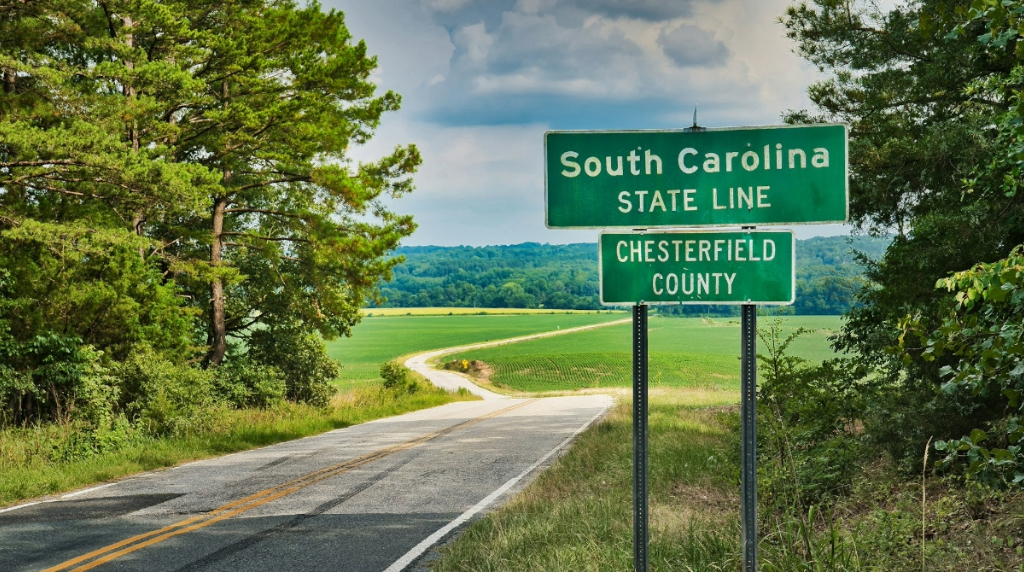Wallace Cheves Backs SC Casino Bill as Opposition Builds
Political intrigue in South Carolina is keeping talk of a new casino located in Santee alive.

Could an old outlet mall become South Carolina’s only casino? © Clint Patterson, UnSplash
Key Facts:
- Wallace Cheves has garnered strong legislative support for a South Carolina Casino
- House Bill 4176 passed out of the House Ways and Means committee last month
- Promoters of the project tout 4600 jobs, and $75 million in additional taxes
- The Governor remains vehemently opposed.
Wallace Cheves is no stranger to completing complicated deals, not even those involving casinos. For the past twenty years, he has been involved in land deals large and small across the Carolinas and is now the owner of the Santee Development Corporation.
But one of his longest-running projects has been through one of his other businesses, Sky Boat Casino LLC, which has spent almost two decades shepherding the Catawba Indians through the process of acquiring land and then having the Bureau of Indian Affairs approve it being taken into trust.
The Catawba are recognized by the Federal Government and have tribal land in South Carolina near Rock Hill. But the Governor and, to a lesser extent, the legislature, have always fought the Tribe on a gaming compact that would have allowed them to open a casino in the state.
But with Mr. Cheves’s help, the Catawba could purchase 17 acres of land and have it taken into trust before eventually building a temporary casino on Kings Mountain in North Carolina. Despite some recent setbacks, their permanent casino is estimated to open late next year.
One of these snags was a decision by the National Indian Gaming Commission, which found that Mr. Cheves’ company had far too much control over a casino project meant to be run and operated by the Catawba Tribe and nullified their agreement.
This led to further acrimony when it was discovered that companies owned by Mr. Cheves had also bought up most of the land surrounding the Tribe’s 17 acres. Thus, the Tribe was essentially landlocked and needed to buy or lease back these lands at “above market rates” to build a parking lot or expand from Mr. Cheves’s companies.
The Santee Casino
The Catawba insist that they have long planned to build a casino in the economically depressed region of Santee. They say Mr. Cheves was well aware of the Tribe’s plans and the potential benefits a casino project located along the I-95 corridor here would bring.
They point to the deal’s timing, where Mr. Cheves bought the abandoned outlet mall in Santee just nine days after the NIGC voided his agreement with the Tribe without informing them of the purchase.
However, besides being an extremely well-connected real estate developer with friends in Washington, Raleigh, and Columbia, it is hard to see what Mr. Cheves has done wrong here. He used his influence to purchase and transfer the tribal lands in North Carolina into trust and set up financing and building permits.
The impact of the Two Kings casino will likely have generational impacts on the 3,300 Catawba tribal members and their families, especially as revenue from the permanent casino begins to flow to the reservation.
House Bill 4176 doesn’t specify a single site or even a single county where a casino might be built. Instead, the I-95 Economic and Education Stimulus Act would allow counties with the lowest job tax tier credits along the interstate corridor to potentially build casinos. This would include Orangeburg County, where Santee is located, and Dillon and Marlboro counties.
While Mr Cheves is much further along with his billion-dollar proposal for his former outlet mall site, the Catawba tribe could still find potential partners and propose a new site in Santee or elsewhere.
This is certainly not to say that the casino bill is a done deal by any means. While polls from around the state seem to show more than 60% in favor of casinos in the Palmetto State, there is still vocal opposition, especially amongst church leaders and clergy. Governor Henry McMaster has also been clear on his not wanting gambling in the state in any form.
While it made its first steps by being passed out of the House Ways and Means Committee several weeks ago, it has yet to make any headway in the Senate and still faces a tough uphill battle on the main house floor. Assuming that it did find its way through the Senate, it would still need enough votes to override the almost certain veto from the Governor.
Still, with neighboring North Carolina showcasing $130 million in taxes from its new online sports betting last year, popular support for new casinos in the state is at an all-time high, and with surprisingly broad bipartisan support in the legislature for this bill, it would be wise never to say never.
But even the promises of thousands of jobs and billion-dollar investments in the states’ hardest-hit economic areas have failed for decades to lift the roadblocks that the state’s powerful anti-gambling opponents have placed in the way. And it would take an awful lot of coordinated heavy lifting this legislative season to change that.

 Reelplay’s Pearl Reef Gigablox Multimax Coming to Online Casinos
Reelplay’s Pearl Reef Gigablox Multimax Coming to Online Casinos
 Spin the Reels of the Pharaoh’s Last Wish Slot from Relax Gaming
Spin the Reels of the Pharaoh’s Last Wish Slot from Relax Gaming
 Stormcraft Studios’ New Slot Thunderstruck Stormblitz Out Now
Stormcraft Studios’ New Slot Thunderstruck Stormblitz Out Now
 F1 Is Back, Starting With Netflix’s Drive to Survive on Friday
F1 Is Back, Starting With Netflix’s Drive to Survive on Friday